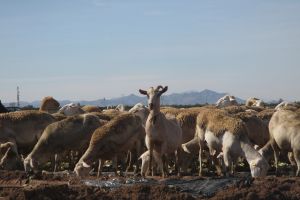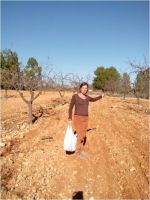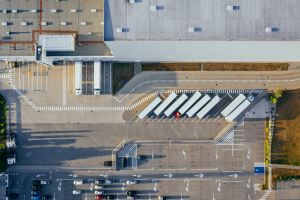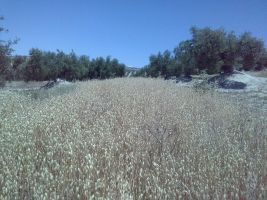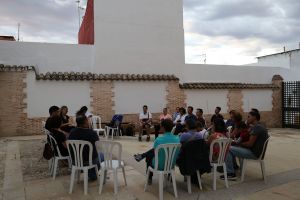- Details
A team from the Diverfarming project has found microplastics in 92% of the faeces of sheep fed in intensive agricultural zones of Murcia that they analysed
In recent times, the increase in plastic residues has been reasserted as being a major environmental problem. This material, which is present in packaging and day-to-day objects, plays a decisive role in intensive agriculture zones.
- Details
A team from the Diverfarming project has shown the efficacy of sustainable management of the soil in avoiding erosion and runoff, above all in intense rainfall events.
The desert is making inroads into the Mediterranean area. The loss of soil produced by erosion and runoff is being aggravated by a semi-arid climate in which the majority of the annual precipitation falls in very few intense rainfall events that drag the land even more. Taking into account that, according to the National Inventory of Soil Erosion (INES) of Spain, more than one third of the surface area of the country suffers from erosion qualified as ‘serious’ or ‘very serious’ means that there is an unavoidable need for actions aimed at protecting the land and agriculture which are supported on Mediterranean soils.
- Details
A research study in the Diverfarming project integrates transport resources and inventory management in a model that seeks economic efficiency and to avoid shortages
It is a long journey from harvesting in the field to the cooked dish that reaches the dinner table. The food supply chain covers all those processes and the actors involved in satisfying the consumer’s needs. To ensure that the chain is successful requires correct administration of the products in the warehouse, inventory, transport management and coordination between warehouses, transport and destination.
- Details
The research team at the University of Cordoba presents their progress within the Diverfarming project in the days on mountain olive groves
Mountain olive groves are having a rough patch. The difficulty in mechanising them means that they are losing their position in the race for profitability, and the new super high density frameworks involving mechanical harvesting which lower costs imply a drop in the competitiveness of traditional olive groves. However, ecosystem services such as the major potential for fixing carbon in the soil (and therefore mitigating climate change), conserving the biodiversity or maintaining the population in rural areas can yet save it.
- Details
The project crosses the halfway point of its duration with results on the benefits of crop diversification and an agricultural community that replicates these sustainable farming practices
Diverfarming has now been in place for 36 months. The project, financed by the European Commission through its H2020 call, has worked for the first half of its lifespan on establishing and trialling different crop diversifications and low-input management techniques in different European regions and now presents its advances to the person in charge of the project and the assessors in the European Commission in this second ‘review meeting’.







